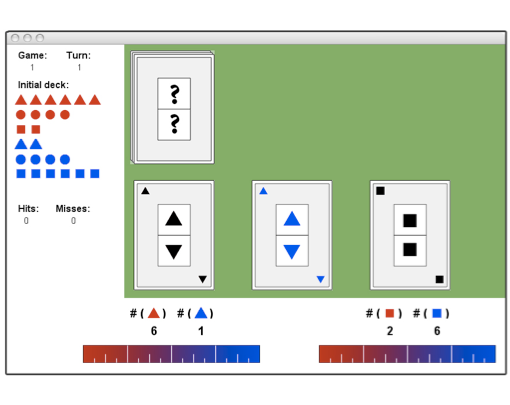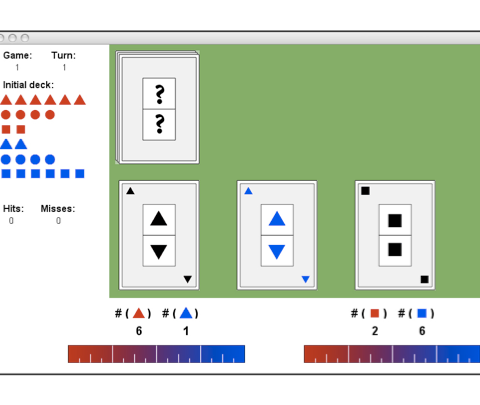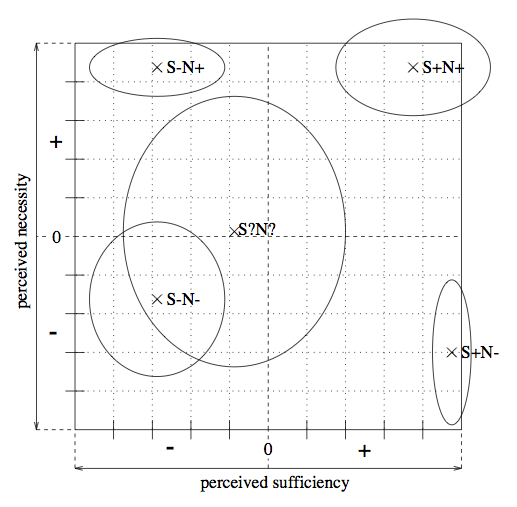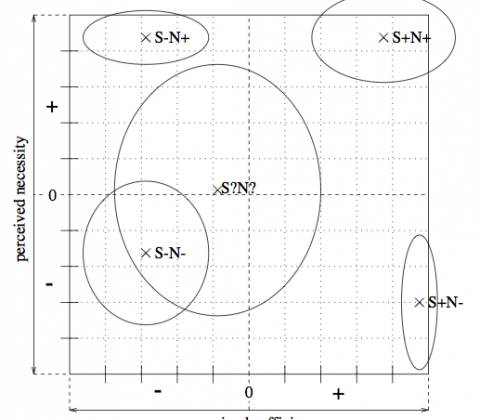Posts in Category: memory


Paper: Dynamic memory updates in TRACS
| You can’t play 20 questions with nature and win. |
| Allen Newell (1973) |
Hansjörg Neth, Chris R. Sims, Vladislav D. Veksler, Wayne D. Gray
You can’t play straight TRACS and win: Memory updates in a dynamic task environment
Abstract: To investigate people’s ability to update memory in a dynamic task environment we use the experimental card game TRACS^tm (Burns, 2001). In many card games card counting is a component of optimal performance. However, for TRACS, Burns (2002a) reported that players exhibited a baseline bias: rather than basing their choices on the actual number of cards remaining in the deck, they chose cards based on the initial composition of the deck. Both a task analysis and computer simulation show that a perfectly executed memory update strategy has minimal value in the original game, suggesting that a baseline strategy is a rational adaptation to the demands of the original game. We then redesign the game to maximize the difference in performance between baseline and update strategies. An empirical study with the new game shows that players perform much better than could be achieved by a baseline strategy. Hence, we conclude that people will adopt a memory update strategy when the benefits outweigh the costs.


Paper: Suppression effects
| A conditional (…) is not a creature of constant hue, but chameleon-like, takes on the colour of its surroundings: its meaning is determined to some extent by the very propositions it connects. |
| P.C. Wason and P.N. Johnson-Laird (1972), Psychology of reasoning: Structure and content, p. 92 |
| Conditionals are acceptable in virtue of a number of different patterns of dependence (…) If we have no pattern of dependence in mind, a primary object of our investigation should then be to get one in mind. |
| D.H. Sanford (1989): If P, then Q: Conditionals and the foundations of reasoning, p. 196ff |
Hansjörg Neth, Sieghard Beller
How knowledge interferes with reasoning: Suppression effects by content and context
Abstract: The suppression of logically valid inferences by the content or context of premises can be seen as an instance of knowledge having a detrimental influence on reasoning. Although Henle (1962) has claimed that invalid deductions are due to additional premises drawn from background knowledge, current research on content effects ignores the methodological implications of this claim. Elaborating on the suppression effect in conditional reasoning (Byrne, 1989), we present a knowledge-based approach that makes relevant features of background knowledge an integral part of the analysis. After identifying the sufficiency and necessity of conditions as the type of knowledge mediating the effect, we construct and validate task materials independently from any assessment of reasoning (Experiment 1). We then replicate and extend suppression effects in syllogism tasks (Experiment 2) and show that participants are able to couch their background knowledge in formally correct wordings (Experiment 3).
Keywords: Logic, thinking and reasoning, conditional syllogisms, effects of knowledge, content, context.
Reference: Neth, H., & Beller, S. (1999). How knowledge interferes with reasoning: Suppression effects by content and context. In M. Hahn, & S. C. Stoness (Eds.), Proceedings of the 21st Annual Meeting of the Cognitive Science Society (pp. 468–473). Mahwah, NJ: Lawrence Erlbaum.
Related: Searching for counterexamples | Diploma thesis
Resources: Download PDF | Google Scholar